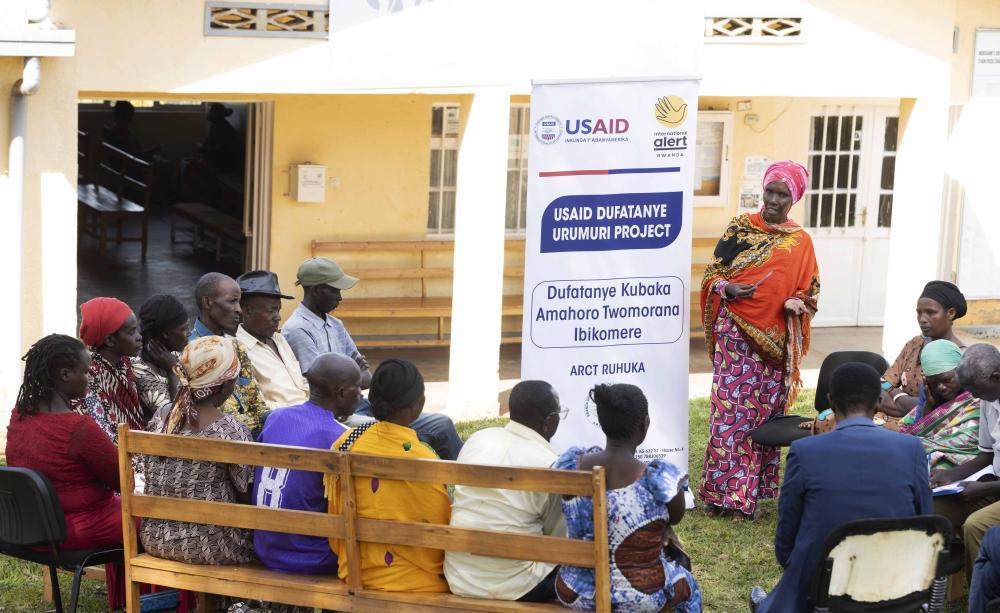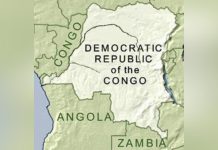Africa-Press – Rwanda. New research by International Alert, an organisation dedicated to addressing conflict root causes, reveals that integrating mental health and psychosocial support (MHPSS) with enhanced economic security and access to justice can effectively disrupt destructive cycles of violence, leading to successful peacebuilding.
Titled “Peace of Mind: Integrating Mental Health and Psychosocial Support in Reconciliation and Violence Prevention Programmes in Rwanda and Tajikistan,” the study provides new evidence of the impact of mental health interventions in preventing conflict within communities and supporting efforts to promote peace and reconciliation.
Conducted in collaboration with Pears Foundation, USAID, and ARCT Ruhuka, the research is accompanied by first-hand accounts of the effect that conflict has had on people’s mental health and how MHPSS is being used to address this.
In Rwanda, the study engaged 404 participants, including representatives from local and international organisations, district officials with expertise in MHPSS within the peacebuilding context, and various focus groups such as women, adult genocide survivors, youth, ex-genocide perpetrators, and community facilitators from 10 districts.
Pacifique Barihuta, the Programme Manager at International Alert Rwanda, highlighted the enduring psychological wounds left by the 1994 Genocide against the Tutsi, especially among younger generations.
Pacifique Barihuta, the Programme Manager at International Alert Rwanda, highlighted the enduring psychological wounds left by the 1994 Genocide against the Tutsi, especially among younger generations. Emmanuel Dushimimana
He said the organisation has been conducting group therapy and dialogue sessions to address trauma and enhance community cohesion.
The new research assessed the sessions’ impact and revealed that the mental health support provided significantly improved trust and solidarity among different groups affected by the Genocide. It also facilitated reconciliation and healing within the community.
“For example, almost 90 per cent of people who participated in these activities reported positive interactions with people from different backgrounds and over 95 per cent of participants developed positive attitudes towards peaceful conflict,” he said.
Barihuta said that a robust shared identity among the people aligns with the government’s “Ndi Umunyarwanda” programme, forming a solid foundation for healing, reconciliation, and peacebuilding. He recognised that while a strong shared identity prevails, concerns exist about coded ethnic divisions, especially among younger people.
Regarding mutual trust and societal tolerance, the research indicates that 56.7 per cent of respondents are open to inviting individuals from diverse backgrounds into their families, 55.6 per cent are willing to leave their children with people from different backgrounds, 59.4 per cent are open to marrying individuals from different categories, and 81.6 per cent are willing to participate in savings groups with diverse categories.
On the impact of post-traumatic stress disorder (PTSD) and other mental health symptoms on the peacebuilding process, 12 per cent of respondents reported actively avoiding situations reminiscent of wars and genocide, 5 per cent avoid circumstances that trigger war and genocide memories, and 4 per cent experience physical or aggressive reactions when reminded of wars or the Genocide.
Barihuta highlighted findings on the readiness to seek healing services and share personal stories.
He said that 62.1 per cent of research respondents are inclined to seek healing services, while only 54.9 per cent express individual readiness to share personal sensitive stories within groups of diverse backgrounds.
Additional insights from the research shed light on attitudes towards peaceful conflict resolution. Among the respondents, 58.5 per cent expressed a willingness to respond peacefully if someone unlawfully seized their land, 80.1 per cent indicated an acceptance of the use of arms or weapons in specific situations for defending the country, while 96.8 per cent affirmed their ability to react peacefully when faced with insults.
Addressing the most urgent issue, Barihuta noted that some individuals tasked with aiding others in their healing journey may themselves need healing.
“The older generation bears the enduring trauma primarily from the Genocide against the Tutsi. Their healing process was interrupted as they dedicated themselves to nurturing both the younger generation and the nation, burying their own emotions in the process. As they age and find moments for introspection, the deep-seated trauma resurfaces. It is crucial to embark on a comprehensive journey of healing for both the older generation and the younger ones. This process, though lengthy, is essential in fostering peace of mind. Meanwhile, much emphasis should be placed on raising awareness among the youth, empowering them to establish peaceful families and break the cycle of potential new trans-generational trauma,” he said.
Ariane Inkesha, the Country Manager of International Alert Rwanda, highlighted that the motivation behind conducting the research was rooted in the recognition that the Genocide had profound effects on all Rwandans.
Ariane Inkesha, the Country Manager of International Alert Rwanda during the interview. Photo by Emmanuel Dushimimana
She said that initially, the psychosocial support approaches aimed to engage with people across all categories, but as it evolved, customised strategies came into place to specifically address the individual wounds people carried.
“So, consistent research and updating of past studies is vital to keep pace with societal evolution and the emergence of new issues. Ongoing awareness efforts are also crucial to prevent a regression to past conflicts among Rwandans,” she said.
Regarding International Alert Rwanda’s expectations from the report, Inkesha stressed the need for the integration of mental health and psychosocial support into peacebuilding initiatives, explaining that in the past, many initiatives had been formulated based on foreign contexts rather than local ones.
“With our research data at hand, peacebuilding initiatives can be implemented more accurately, resulting in a more impactful outcome,” she said.
“What we expect is that in every forthcoming peacebuilding initiative, particularly in conflict-ridden areas, these local and tailored approaches can be incorporated to ensure comprehensive care.”
In addition to psychological support, Inkesha emphasised the significance of economic initiatives in peacebuilding, asserting that raising awareness is challenging when people are struggling with basic needs such as food.
Bernard Gakiga, a participant in the USAID Dufatanye Urumuri
Mediatrice Musengimana, a participant in the USAID Dufatanye Urumuri
For More News And Analysis About Rwanda Follow Africa-Press






